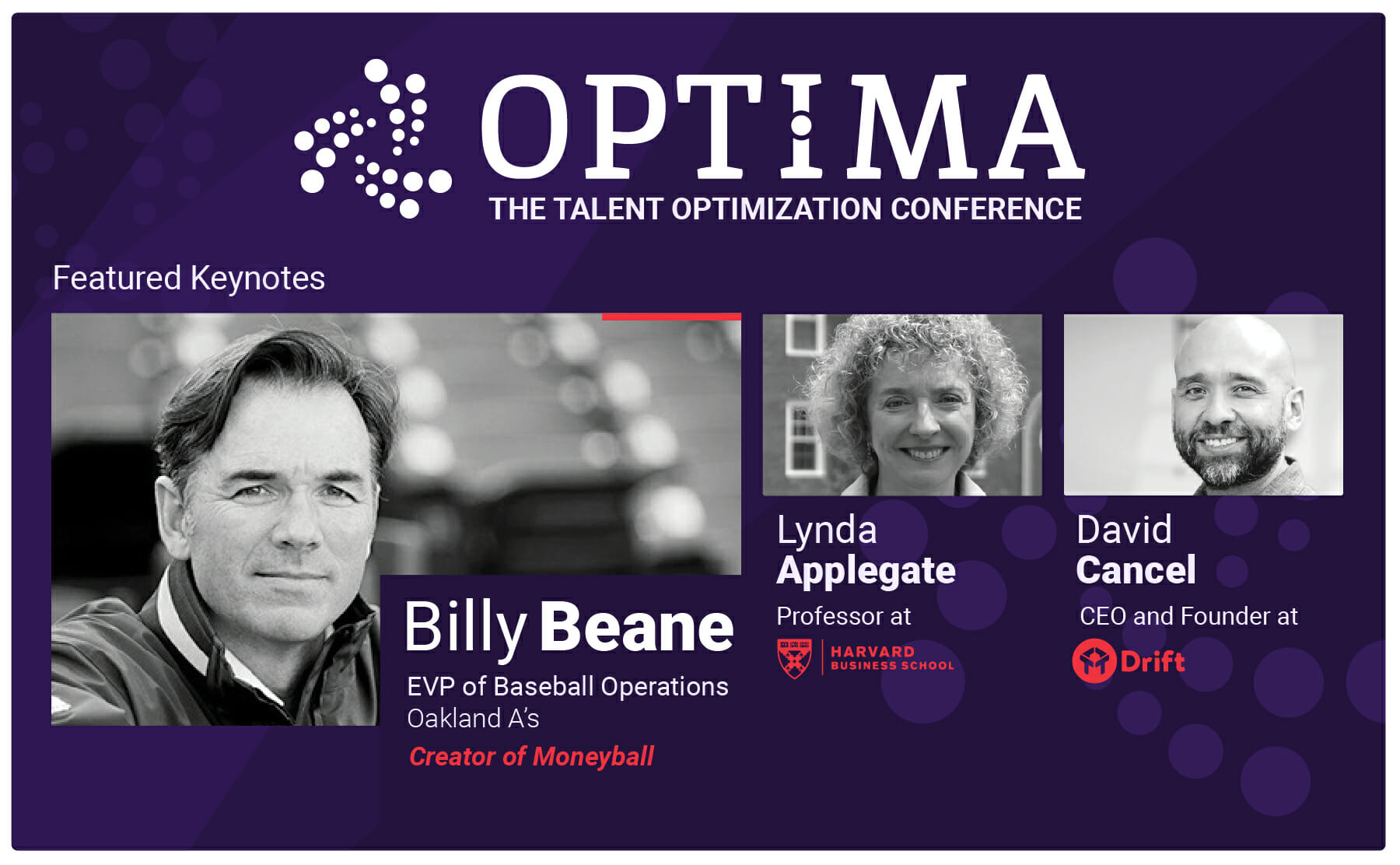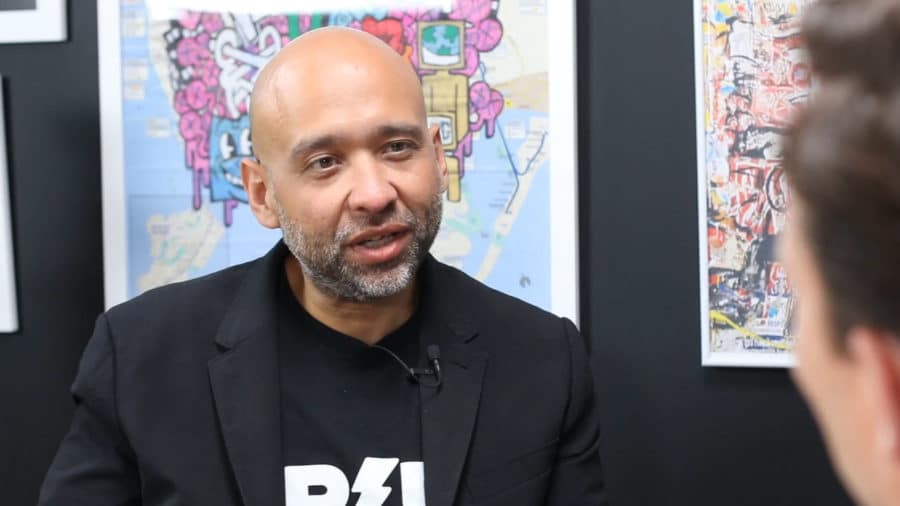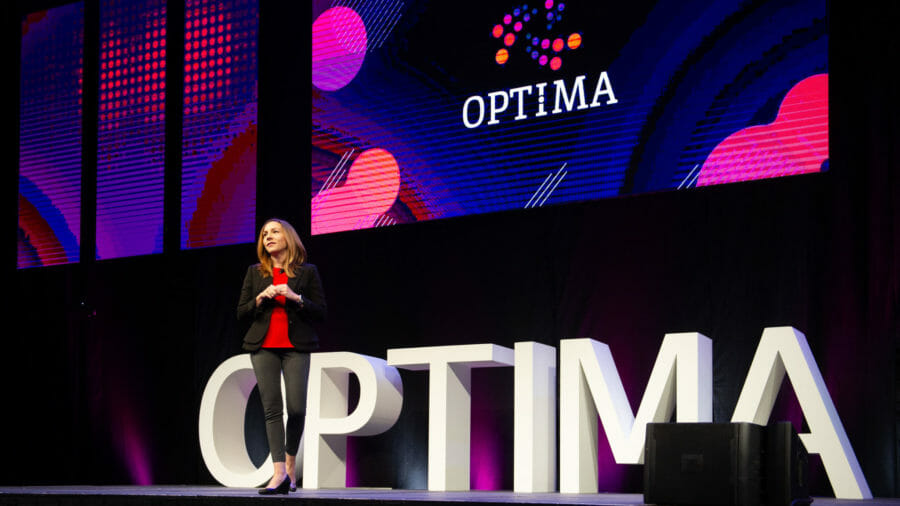OPTIMA—the world’s first talent optimization conference—kicked off today with an opening keynote from Billy Beane.
Beane runs the Oakland A’s—and he’s known for taking a mathematical approach to assembling a competitive baseball team on a shoestring budget. (Michael Lewis coined it Moneyball.)
When Beane started using math and data to design winning baseball teams, it was completely countercultural. At the time, scouts flew all over the country to identify fresh talent. That approach was both inefficient (it took a lot of time) and inaccurate (not every player who looked like a good player played well and vice versa).
The same thing happens in business: Candidates are judged on what’s seen—their resume, work experience, and how they do in interviews. But this surface-level insight is insufficient in making good hires. Just like in baseball, great talent isn’t always seen with the naked eye.
Here are some tips from Beane’s message you can apply to your business:

Don’t be afraid to do something different.
When Beane started using the Moneyball methodology to pick players, people thought he was crazy. Why fix what’s not broken?But Beane and his partner-in-crime, Paul DePodesta, knew that something was broken. DePodesta ran the numbers and discovered massive inefficiencies in the drafting process. So they took a different approach.
The moral of the story? Just because there’s “a way things have always been done,” that doesn’t mean that’s the best way to do things.
Takeaway: Just like Beane broke the mold in baseball, you can break the mold in your company by leveraging people data to make informed decisions about your talent.
“Making a decision without data and information is like running through a room in the dark not knowing where the furniture is.” – Billy Beane
Look at the data—not what you see in front of you.
As Beane said in his keynote, “Your eyes and your gut will fail you.” A lot of what matters isn’t visible.
At the time, the industry was paying for skills that didn’t have a correlation with winning. They were looking for people who never struck out. But the data showed the No. 1 skill for baseball players was actually the skill scouts ranked eighth in importance: the ability to get on base.
This understanding allowed Beane to nab Matt Stairs—a player who didn’t look the part. He didn’t pass the scouts’ “eye test”—the visual assessment scouts gave players.
Stairs went on to hit more than 35 home runs in a season—and currently holds the all-time MLB record of most pinch-hit home runs: 23.
Takeaway: Don’t miss out on your own version of Stairs. Collect and use people data to make better hiring and management decisions.
Talent optimization is Moneyball for business.
Want to take a more data-driven approach to your talent? The discipline of talent optimization is where you want to start.
Transform your talent strategy. Join the Talent Optimization Nation at www.talentoptimization.org.
Join 10,000 companies solving the most complex people problems with PI.
Hire the right people, inspire their best work, design dream teams, and sustain engagement for the long haul.


